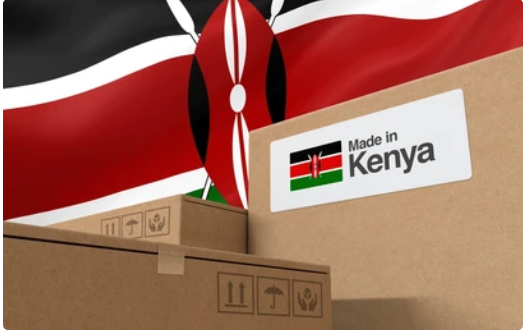By Peter Halima
Nairobi, Kenya – Kenya’s economic struggles are taking a toll on the job market, with over 20% of manufacturers and service-oriented businesses cutting full-time positions in recent months. This alarming trend is revealed in the Central Bank of Kenya’s (CBK) Chief Executive Officers’ (CEOs) Survey for May 2025, which interviewed over 1,000 company heads.
The survey paints a concerning picture of the Kenyan economy, revealing that 23.5% of manufacturing and 23.9% of service companies, including those in the hospitality sector, reduced their full-time workforce between the end of March and June 2025. This widespread job reduction exacerbates an already challenging labor market.
“The elevated cost of doing business, cashflow challenges, and muted consumer demand are some of the factors that could constrain growth at the company level,” the CBK survey stated, highlighting the underlying causes of the economic downturn.
While the majority of companies (64.7% in manufacturing and 65.2% in the services sector) maintained their workforce levels, the significant percentage of businesses reducing staff reflects a cautious recruiting approach in the face of dwindling demand for goods and services. On the other hand, a smaller portion of businesses, 11.8% in manufacturing and 10.9% in services, reported growth in their full-time workforce during the same period.
The survey also indicates a decline in revenue for many businesses. While 52.9% of manufacturing companies reported sales growth, 41.2% experienced a drop from March levels. Similarly, in the service sector, 38% of businesses reported a revenue decline, while only 26.1% saw growth.
This downturn in sales has forced companies to take drastic measures. 47.1% of manufacturers responded to lower sales by cutting production.
A separate CBK study involving 302 non-banking businesses and 37 banks further reinforces the bleak outlook. Almost one-third of the businesses surveyed indicated they would not be hiring additional employees this year. “As for hiring in 2025, non-bank players had conflicting predictions. 34% of the respondents said they would not hire because of the increasing taxes, delayed government payments, and growing operational costs. They also said they would use ICT to eliminate manual procedures,” the survey revealed.
This contraction in job creation poses a significant challenge for job seekers in a country that created 782,300 new jobs in 2024, a decrease from the 848,100 created the previous year. Notably, 90% of the jobs created in 2024 were in the informal sector, according to the Kenya National Bureau of Statistics (KNBS).
The slowdown in job creation and the recent job cuts are attributed to high financing costs, devastating floods that impacted agricultural production, and economic disruptions following protests against the Finance Bill 2024. The International Monetary Fund (IMF) has also projected slower economic growth for Kenya in 2025, further fueling concerns about the country’s economic future. The CBK survey serves as a stark reminder of the challenges facing Kenyan businesses and the urgent need for strategies to revitalize the economy and create sustainable employment opportunities.









